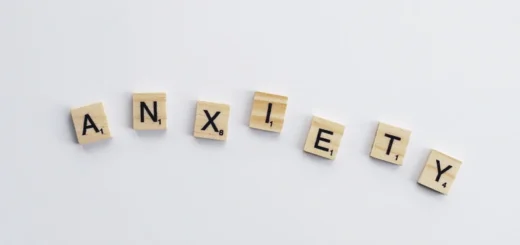How to Remember Dreams: Understanding Why We Forget and How to Recall Dreams Better
Most people forget their dreams due to the brain’s natural transition from the dreaming state (REM sleep) to wakefulness, making memory retention challenging. To remember your dreams, try keeping a dream journal, setting an intention before sleep, and reducing distractions upon waking. Over time, consistent practice helps strengthen your ability to recall even the most elusive dreams.

Why Do We Forget Dreams?
It’s a common question: why do we forget dreams, and why is it so easy to forget dreams minutes after opening our eyes? When you move from the rapid eye movement (REM) stage of sleep into wakefulness, your brain undergoes a chemical shift. During REM sleep, certain neurotransmitters associated with memory formation are less active. As you wake, these brain chemicals shift gears, refocusing attention on immediate surroundings and tasks. This biological shift helps you transition into daily life but also means that you’re less likely to retain dream details.
Another factor to consider is that dreams often lack a logical narrative. If you’ve ever wondered why is it hard to remember dreams, it’s partly because dreams rarely follow a coherent storyline. Without strong narrative anchors or emotional intensity, memories of dreams quickly fade. Additionally, your mind may deem dream content less important than real-life experiences, further reducing the likelihood of retaining it.
Why Can’t I Remember My Dreams?
If you find yourself asking why cant I remember my dreams or why do I forget my dreams when I wake up, rest assured you’re not alone. Many people struggle with dream recall because the brain prioritizes waking experiences over nocturnal adventures. For some, this forgetfulness might be related to sleep patterns. Poor sleep hygiene, excessive stress, or inconsistent sleep schedules can all contribute to reduced dream recall.
You may also wonder, why can i not remember my dreams at all, as if your nights pass by dreamlessly. In reality, everyone dreams—even if you never remember them. The simple truth is that not all dreams leave a strong enough impression to persist into waking memory. Inconsistent attention to dreams, waking up abruptly to an alarm, or immediately focusing on daily routines can hinder dream recall.
Is It Normal to Remember Dreams?
Many people ask, is it normal to remember dreams? Absolutely. It’s also normal not to remember them. The spectrum of dream recall varies widely. Some individuals recall vivid, detailed dreams almost every morning, while others recall dreams only occasionally. What does it mean when you can remember your dreams or even recall having multiple dreams—like wondering, why do I remember having 3 dreams in one night? High dream recall can indicate you’re waking up during or immediately after REM sleep, which allows you to capture those fleeting moments more clearly. In other cases, your increased focus on dreams, emotional intensity, or the presence of strong personal symbolism in the dream might anchor it in your memory.
What Does It Mean When You Remember Your Dreams?
If you’ve ever pondered, what does it mean when you remember your dreams or what does it mean when u remember a dream, it could be a sign that your subconscious mind is processing events, emotions, or memories that resonate with you. Dream recall might indicate that something in the dream struck an emotional chord, captured your attention, or provided insight into personal issues. While there’s no universal interpretation for remembered dreams, those vivid recollections often mean your mind is inviting you to reflect on the dream’s possible message or meaning.
Why Do Some People Remember Their Dreams?
Why do some people remember their dreams while others struggle with a blank slate each morning? A few reasons stand out. Genetics might play a subtle role, with certain people simply more predisposed to retaining dream content. Sleep habits also matter. Good sleepers, who maintain consistent schedules and minimize disruptions, often recall dreams more easily. Furthermore, an individual’s personal interest in dreams can enhance recall. If you’re actively trying to remember and interpret your dreams, your brain often responds by making the content more accessible upon waking.
How to Remember Dreams: Practical Tips
Now that we’ve addressed why dreams slip away, let’s explore how to remember dreams. Many people ask how can you remember dreams or how to recall your dreams better, and the good news is that there are proven techniques to improve dream recall. Whether you’re curious, inspired by dream interpretation, or simply fascinated by the human mind, these strategies can help.
1. Set an Intention Before Sleep
One of the simplest ways to improve dream recall is to tell yourself before falling asleep that you will remember your dreams. This gentle self-suggestion primes your mind, making you more attentive to dreams and more likely to recall them upon waking. For those who wonder, how to recall dreams better, a quiet moment of intention-setting can work wonders.
2. Keep a Dream Journal
A dream journal is a powerful tool for anyone asking what are the most effective methods of remembering dreams. Place a notebook and pen by your bedside, and as soon as you wake up—even in the middle of the night—write down everything you remember. Don’t worry about making sense of the dream at first. Jot down images, emotions, colors, or snippets of dialogue. Over time, this practice strengthens your ability to capture those fleeting dream fragments, making it easier to remember dreams in greater detail.
3. Avoid Abrupt Wake-Ups
If you rely on a loud alarm to jolt you out of sleep, you may be losing precious dream memories. Consider waking up more gently if possible. If your schedule allows, wake up naturally or use a gentle alarm sound. Lying still for a few moments before getting up can also help you search your mind for lingering dream images. This approach is often recommended for those searching how to recall your dreams without losing them to sudden morning activities.
4. Reduce Distractions in the Morning
Why do we forget dreams so quickly? Often, it’s because we immediately shift our attention to other tasks. Check your phone, think about your to-do list, or start chatting right away, and your dreams vanish. To improve recall, give yourself a moment of stillness when you wake. Focus on how you feel and what you remember before engaging with external stimuli.
5. Improve Sleep Quality
High-quality rest plays a significant role in dream recall. Establish a consistent bedtime and wake-up time, avoid caffeine late in the day, and create a relaxing pre-sleep routine. A well-rested mind can more easily remember dreams. Those who struggle with the question, why do I forget my dreams when I wake up, might find that simply getting better sleep encourages clearer dream memories.
6. Experiment with Supplements and Techniques
Some people explore supplements like vitamin B6 or other methods to boost dream recall. Although these approaches are anecdotal, certain vitamins or herbs may improve memory formation during REM sleep. Experimenting with visualization exercises before bed—imagining yourself recalling a dream—may also help. While not guaranteed, trying different techniques can guide you toward your personal best practices.
What Does It Mean When You Can’t Remember Dreams?
If you rarely remember dreams and wonder if it’s problematic, don’t worry. There’s no evidence that failing to recall dreams signals a health issue. Still, if you’re curious about their messages or want to engage more deeply with your subconscious, following the tips above can improve your recall. Dream memory isn’t mandatory for health, but it can be enlightening and entertaining. And for those who ask, why do we forget dreams or why do we forget dreams so quickly, it often comes down to the brain’s prioritization of waking life over nocturnal images.
Connecting Dream Recall to Meaning
Many times, improving your ability to remember dreams leads to deeper self-understanding. Individuals often ask, what does it mean when you remember your dreams, because they sense that dreams contain psychological symbolism or insights into personal concerns. If you remember a dream vividly, it might carry themes relevant to your feelings, fears, ambitions, or unresolved conflicts. By reflecting on remembered dreams, you can uncover hidden patterns and even find creative solutions to real-life challenges.
Putting It All Together
Remembering dreams is a skill that you can cultivate, much like learning a new language or practicing an instrument. If you’re still asking why do I remember having 3 dreams or wondering how to remember dreams more consistently, start with small changes: keep a dream journal, set an intention, improve sleep hygiene, and approach your mornings with patience. Over time, these practices can transform dream recall from a random event into a regular and meaningful part of your life.
As you become more adept at recalling dreams, you may feel more connected to your subconscious mind. The more clearly you remember your dreams, the better you can interpret their symbols, understand your hidden emotions, and gain insights into your mental landscape. This journey isn’t about perfection or recalling every dream—it’s about fostering curiosity, openness, and self-awareness. By doing so, you may find that dreams are not only easier to remember, but more enlightening to understand.
















